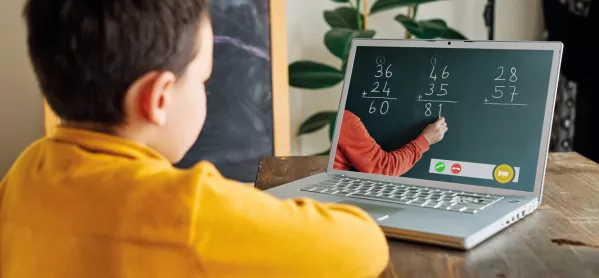Schools will be able to order “top-up” laptops for pupils in need from next Monday, the government has said.
New figures published by the Department for Education today show that the delivery rate for free laptops for disadvantaged students has dropped every week since the start of term.
But the DfE has told Tes that it expects to see an increase in deliveries once orders open for extra allocations next week.
Free laptops: DfE delivery rate drops every week this term
Exclusive: DfE laptops don’t work, say one in five heads
Headteachers: Laptops shortage ‘still not fully resolved’
The department said the overwhelming majority of schools have now received their initial allocation of free devices for disadvantaged pupils.
Laptops for disadvantaged pupils ‘better late than never’
But from Monday 8 February, schools will be invited to order additional laptops and tablets, the DfE said.
These devices will come out of the 300,000 extra laptops and tablets announced by the department in January.
Schools in the areas with the highest proportion of disadvantaged pupils - determined by the number of children on free school meals - will be invited to order first, the department said.
Geoff Barton, general secretary of the Association of School and College Leaders, said: “We are very pleased to see the continuing rollout of laptops, and to hear that there will be an opportunity for schools to receive top-up allocations in the near future for more disadvantaged children.
“The great shame with all of this is that it is happening so late in the day when we are deep into a second period of lockdown restrictions, and following a highly disrupted autumn term, as well as the previous lockdown period. We are still not sure either that the government has ever fully understood the level of needs that exists.
“However, it is a case of better late than never, and it does give us a golden opportunity when the country finally emerges from the pandemic to really build on this programme further to fully utilise digital technology for every child on a permanent basis.”
